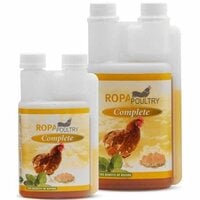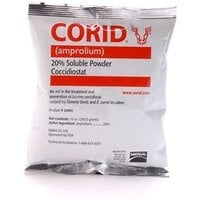HendricksonHomestead
Songster
I need help! My Rhode Island Red hen (she's about 2 years old) is very lethargic/lifeless, she won't move at all, she won't eat at all, and she only drank a little bit when I soaked her in the tub for 20 minutes. She also won't keep her eyes open unless she's startled.  I just don't know what's wrong with her. I gave her a tums and soaked her in a bath just in case she's egg bound. I can't feel an egg inside of her but I acted as though she's egg bound just in case. Where I live it's been between 10 & 20 degrees F every night and only in the 30s during the day. I have her inside my house tonight so she isn't cold at all. I syringe fed her some water with sugar to try to give her some energy since I don't have any electrolytes handy. Is there anything else I can do?? I just dewormed my flock last month and we have snow on the ground right now so I don't think parasites are an issue. I blew on her skin under her wings and I didn't see any mites either. I'm just lost on what's wrong with her and how to help her.
I just don't know what's wrong with her. I gave her a tums and soaked her in a bath just in case she's egg bound. I can't feel an egg inside of her but I acted as though she's egg bound just in case. Where I live it's been between 10 & 20 degrees F every night and only in the 30s during the day. I have her inside my house tonight so she isn't cold at all. I syringe fed her some water with sugar to try to give her some energy since I don't have any electrolytes handy. Is there anything else I can do?? I just dewormed my flock last month and we have snow on the ground right now so I don't think parasites are an issue. I blew on her skin under her wings and I didn't see any mites either. I'm just lost on what's wrong with her and how to help her. 

 I just don't know what's wrong with her. I gave her a tums and soaked her in a bath just in case she's egg bound. I can't feel an egg inside of her but I acted as though she's egg bound just in case. Where I live it's been between 10 & 20 degrees F every night and only in the 30s during the day. I have her inside my house tonight so she isn't cold at all. I syringe fed her some water with sugar to try to give her some energy since I don't have any electrolytes handy. Is there anything else I can do?? I just dewormed my flock last month and we have snow on the ground right now so I don't think parasites are an issue. I blew on her skin under her wings and I didn't see any mites either. I'm just lost on what's wrong with her and how to help her.
I just don't know what's wrong with her. I gave her a tums and soaked her in a bath just in case she's egg bound. I can't feel an egg inside of her but I acted as though she's egg bound just in case. Where I live it's been between 10 & 20 degrees F every night and only in the 30s during the day. I have her inside my house tonight so she isn't cold at all. I syringe fed her some water with sugar to try to give her some energy since I don't have any electrolytes handy. Is there anything else I can do?? I just dewormed my flock last month and we have snow on the ground right now so I don't think parasites are an issue. I blew on her skin under her wings and I didn't see any mites either. I'm just lost on what's wrong with her and how to help her. 




